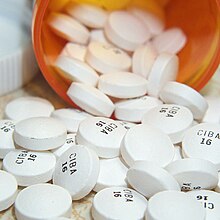 When a drug to prevent babies from being born too early won federal approval in February, many doctors, pregnant women and others cheered the step as a major advance against a heartbreaking tragedy. Then they saw the price tag.
When a drug to prevent babies from being born too early won federal approval in February, many doctors, pregnant women and others cheered the step as a major advance against a heartbreaking tragedy. Then they saw the price tag.
The list price for the drug, Makena, turned out to be a stunning $1,500 per dose. That’s for a drug that must be injected every week for about 20 weeks, meaning it will cost about $30,000 per at-risk pregnancy. If every eligible American woman were to get Makena, the nation’s bloated annual health-care tab would swell by more than $4 billion.
What really infuriates patients and doctors is that the same compound has been available for years at a fraction of the cost — about $10 or $20 a shot.
“It’s outrageous,” said Helain J. Landy, chairman of obstetrics and gynecology at Georgetown University Hospital. She prescribes a form of the hormone progesterone under the name 17P for some of her patients. “Raising the cost of each injection from around $20 to $1,500 is ludicrous.”
The company that owns Makena, KV Pharmaceutical of St. Louis, says the price is reasonable, given that it is spending more than $200 million to develop the drug and conduct follow-up studies that the Food and Drug Administration demands, and because of the savings resulting from preventing preterm births. Through a subsidiary, Ther-Rx Corp., the company created a program to help women who can’t afford it.





 Toothpaste can be widely contaminated with lead and other dangerous heavy metals, new research shows.
Most of...
Toothpaste can be widely contaminated with lead and other dangerous heavy metals, new research shows.
Most of... CT scans diagnose afflictions from tumors to kidney stones to life-threatening diseases and injuries, such as...
CT scans diagnose afflictions from tumors to kidney stones to life-threatening diseases and injuries, such as...






























